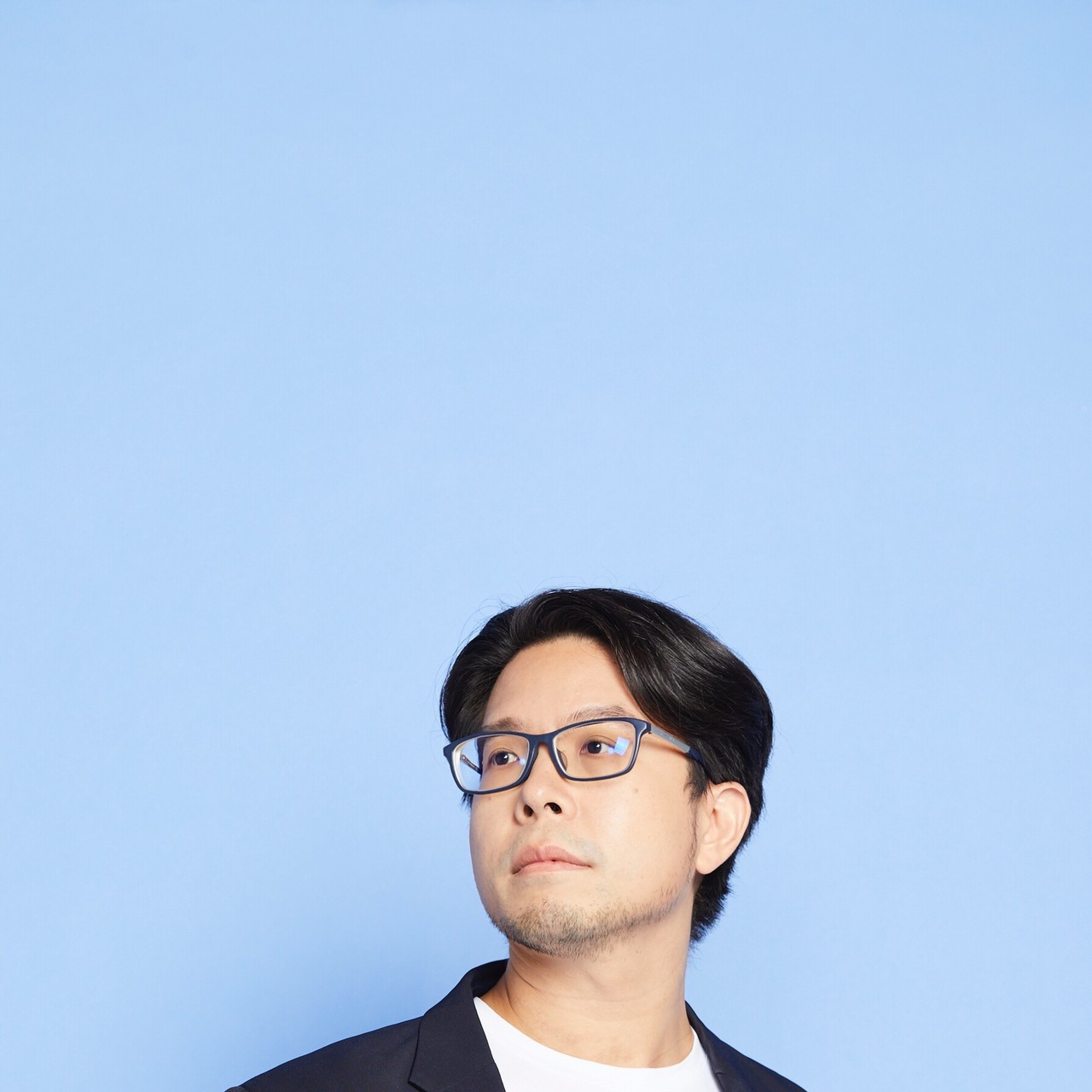
FELLOW STORY
Discover the stories of those innovating everyday life – the Beautiful Fellows
Amorpol Huvanandana_moreloop
Make circular economy a reality
"'moreloop' curates high-quality surplus fabrics from factories, and matches them through a platform with potential customers to maximize their value and minimize waste in the fashion industry."
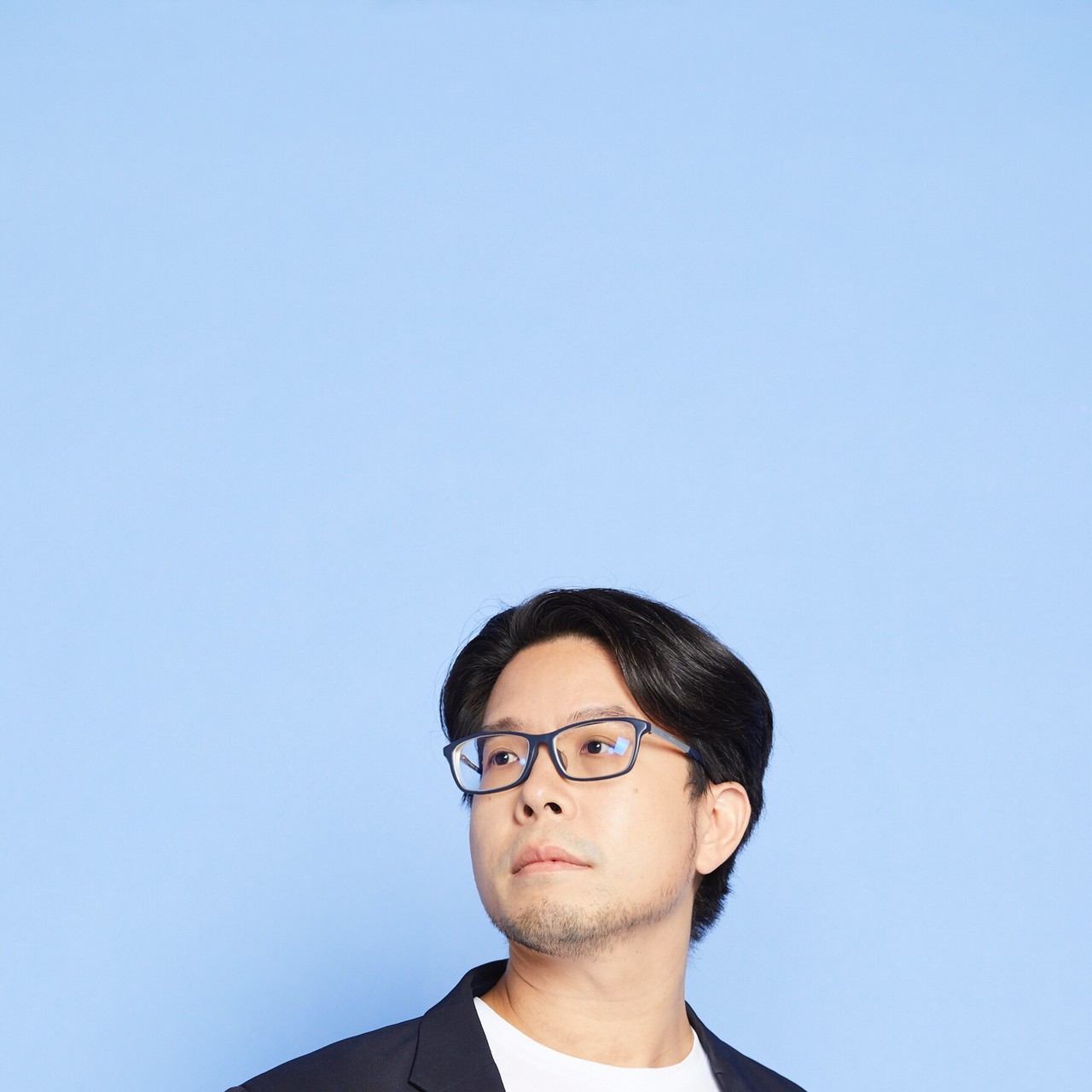
'Quickly, Quickly'. It's a word especially familiar to Koreans. Now that the world is connected online, transcending languages and borders, the world's trends are changing more rapidly. The same goes for fashion. In recent years, ‘Fast Fashion’ has become a hot potato in the fashion industry. ‘Fast fashion’ literally means fashion that is supplied at a relatively low price by quickly reflecting the latest trends. The problem is that fashion changes so quickly that too many fashion products are produced and a lot of them are thrown away. The process of producing and distributing ‘fast fashion’, including a large amount of waste, is putting a lot of pressure on the environment. Today, We will introduce the third Asia Beautiful Fellow, Amorpol Huvanandana who is working to reduce environmental problems in the fashion industry in Thailand and to build 🌏a sustainable circular economy.
What is moreloop?
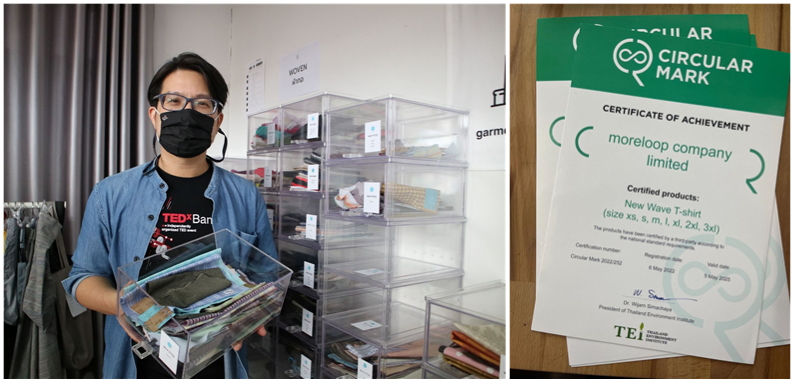
ⓒ moreloop
‘moreloop’ is a Thai company that solves environmental problems related to the fashion industry with a sustainable eco-friendly system and is building a ‘circular economy’ structure! It runs an online platform where you can order 'surplus fabric' from a garment factory instead of buying new fabric to make a product. Individual designers and small and medium-sized enterprises(SMEs) purchase the desired amount of high-quality fabric at a reasonable price, contributing to environmental value by recycling the surplus fabric that could have been thrown away. In addition to operating this online platform, moreloop also produces upcycled products and customized products.😆
Amorpol, who used to say, “I want to solve environmental problems with the technology that I can do,” started moreloop in 2017 with his friend Thamonwan. There are many garment factories in Thailand, where he lives, and he created a company, moreloop to solve the problem of 'surplus fabric', which is a problem for each factory, and to transform into a circular economy structure. He is contributing to carbon reduction by collaborating with garment factories in Thailand to collect and use data on fabrics left in stock in order to use discarded ‘surplus fabric’ as ‘resources’. He is also conducting his own research by creating a calculation formula for carbon dioxide reduction by fabric material and color based on data from the Thailand Greenhouse Gas Management Organization. His goal is to reduce 1,000,000 kg of carbon dioxide by 2024!
‘Loop’ means ‘ring’.
Why did he pay attention to the ‘surplus fabric’ of the garment factory,
and why did he want to become a ‘connection’ between the garment factory and the customers?
to tackle these issuse
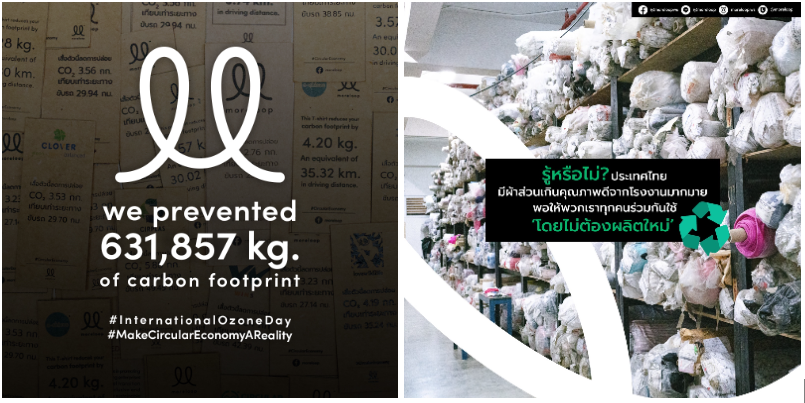
ⓒ moreloop
Trends in the fashion industry change rapidly, so the fabrics used are also constantly changing. As a result, fabrics that are not used in that season are often not reused for the next season and quickly accumulate in storage.
According to the Thailand Board of Investment, about 900,000 tons of synthetic fibers are produced each year, and about 47,000 companies make textiles in Thailand. In addition, a variety of clothing manufacturers, from large and small local brands to global clothing brands, are making fashion products in Thailand. As the fashion industry has developed greatly, there are also many environmental problems caused by it. In particular, since manufacturing plants have to order more fabrics than necessary for various reasons, surplus fabrics are also constantly being generated. According to Amorpol, about 350,000 tonnes of surplus fabric is produced in Thailand each year. Therefore, despite the high quality, a lot of surplus fabric is not used and is often piled up in factories and headed for landfills.
The amount of water used by the global fashion industry each year is about 93 bcm (billion cubic meter), which is equivalent to providing 5 million people, and 20% of the world's wastewater is generated in the process of dyeing and treating textiles (World Bank, 2019) is a research result. It means that every time we make clothes, we have a lot of effect on the environment. Also, additional environmental pollution is caused by fabrics that are landfilled and incinerated. Creating products in an environmentally friendly way is very important, but most of what has already been made is also an important way to protect the environment.
So, Amorpol is building a circular economy so that surplus fabric that can become waste can be used as a 'resource'.
It’s good for garment factories because they can sell surplus fabric, and people can buy good quality fabrics and products at relatively low prices.
It's also good for the environment because carbon is reduced in the process.
He is creating a beautiful cycle where everyone wins!
So, let's take a look at what he is doing one by one.
What does Waste moreloop do?
1. Sales of surplus fabric to individuals and designers
Most fabrics require you to buy a large quantity at a time, even if you want to buy the minimum. For individual designers, even if they want to purchase a variety of fabrics in a small amount, the cost burden is high. On the other hand, garment factories always have a lot of fabric left over after making seasonal items, so they have a hard time handling inventory. So Amorpol created a database of high-quality surplus fabric from garment factories; an online platform where people could buy the quantity they wanted at a low price. The categories are divided by fabric material and color, and the amount of fabric required according to the type of clothes is kindly introduced, so anyone can purchase it without any difficulty! If you are worried about choosing a fabric, you can always get fabric matching consulting!
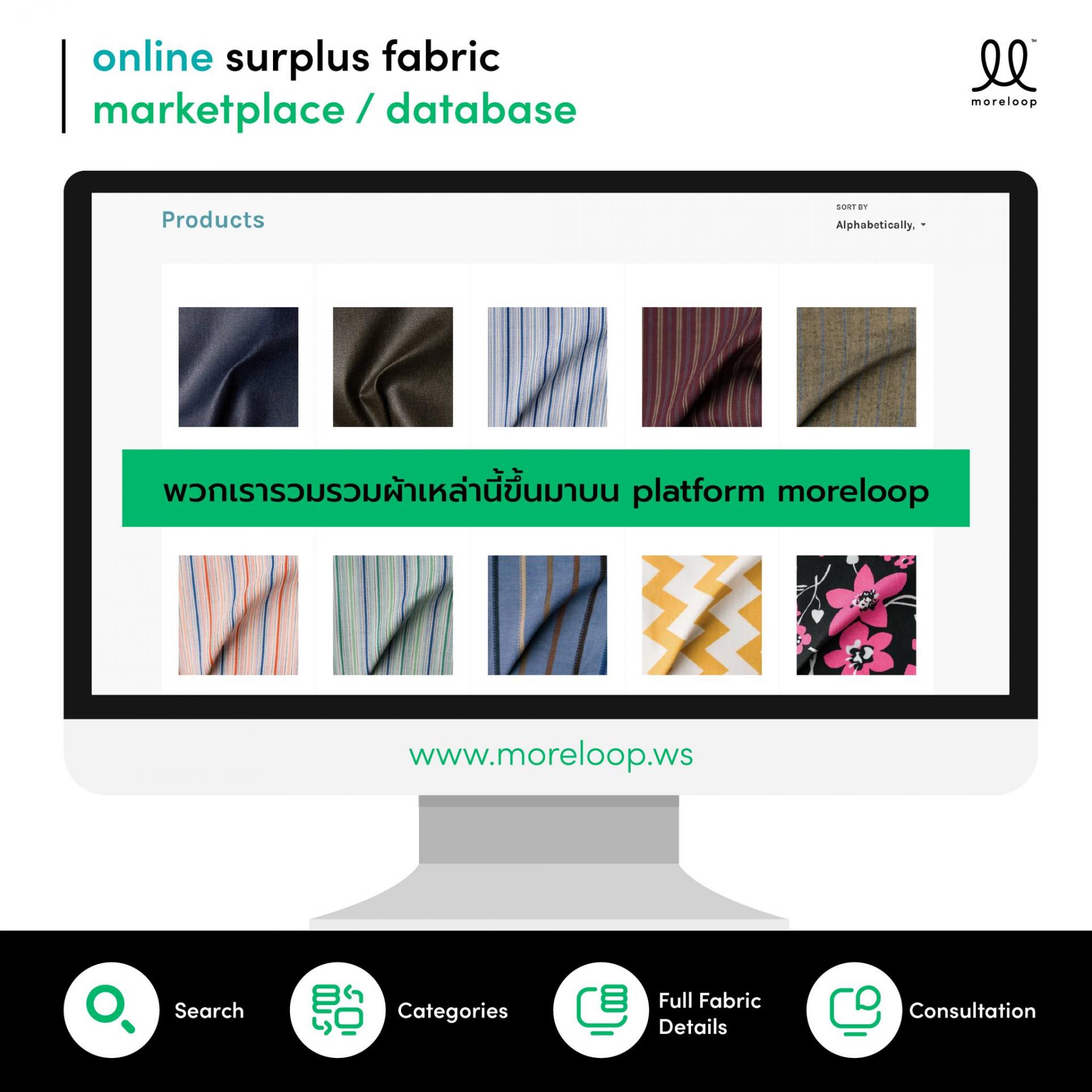
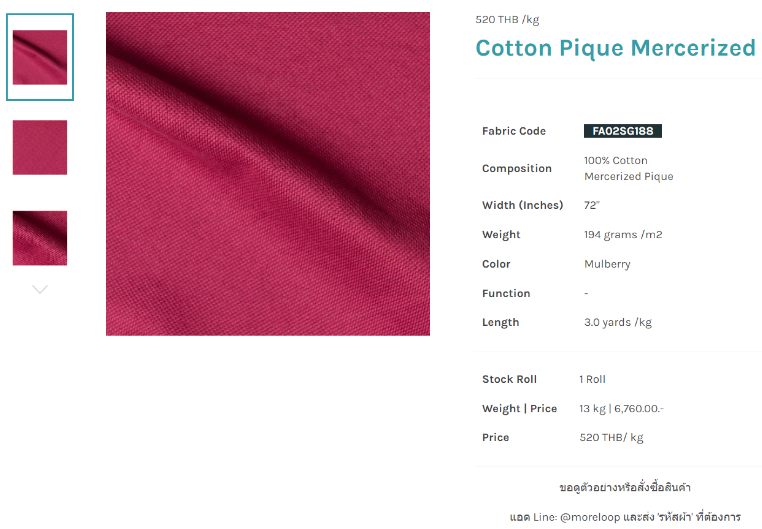
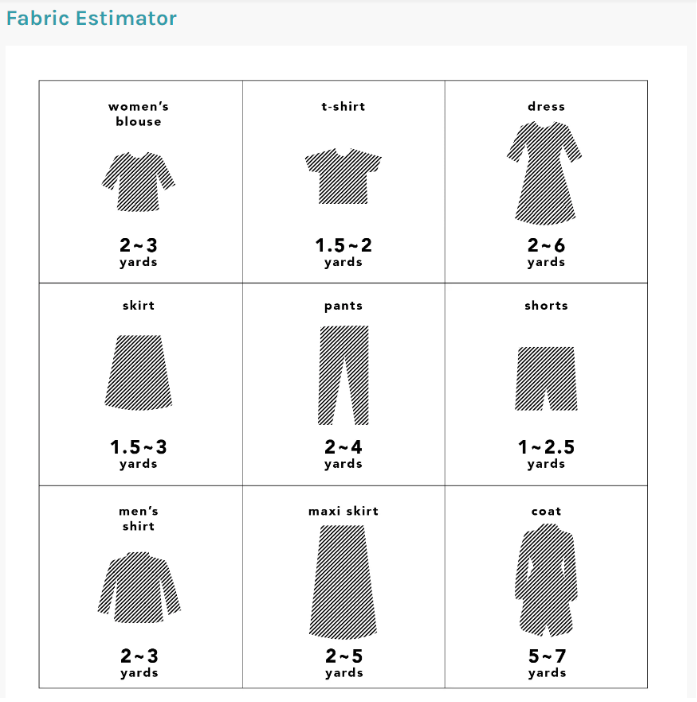
ⓒ moreloop
2. Production and sales of B2B upcycling products
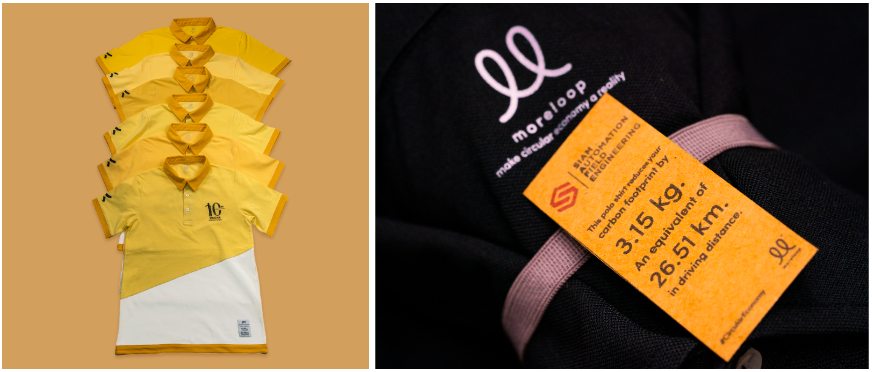
ⓒ moreloop
moreloop not only sells fabrics, but also designs and manufactures its own products. It manufactures and sells corporate-customized products such as uniforms, T-shirts, and bags for businesses. However, it tends to be produced in a slightly different form from general products. It isn’t easy to purchase the same fabric in bulk because it places an order for each factory and supplies surplus fabric. In other words, fabrics and colors are sometimes mixed and matched in case of bulk orders because fabrics must be supplied within the database of moreloop. For example, if there is a large order for a blue t-shirt, but there is not enough blue fabrics to make, moreloop consults with the company and mixes the blue and green fabrics together to make the t-shirt. moreloop's special products are born that satisfy the company with creative design while maximizing the use of surplus fabric!
3. Production and sales of B2C upcycling products
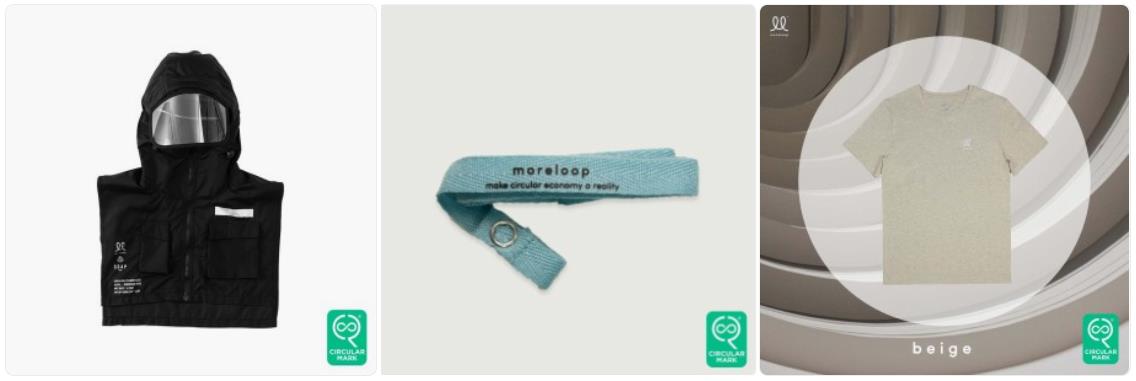
ⓒ moreloop
Amorpol also produces and sells a variety of upcycling products for general customers! You can purchase not only fashion products such as T-shirts and bags, but also quarantined items such as masks and protective clothing. moreloop designs in collaboration with local designers, and some products have been awarded the 'CIRCULAR MARK' by the government! ♻️'CIRCULAR MARK' is a certificate issued by the Thai government to products certified as eco-friendly by evaluating the entire process from production to packaging and distribution! It's amazing that from T-shirts to masks, mask necklaces and zero-waste hoodies are certified. All products that are helpful for the environment and have moreloop's unique design can be purchased on its website.🤗
Many stakeholders are working with Amorpol to solve the waste problem in the fashion industry.
They're trying to make the transition a little bit more environmentally friendly.
Let's listen to the stories of people making round loops with moreloop.
>People working with moreloop
Co-Founder, Thamonwan
Amorpol and I have been friends for 10 years. I originally worked in a family run clothing factory. After each season or at the end of each order, there was a lot of fabric left over. In some cases, it was difficult to order a small amount, and because of the relationship with the company we were dealing with, we often ordered more fabric than necessary.
Fashion trends change so quickly that the fabrics used this season are often not available for the next season. The surplus fabrics were also of good quality, so I tried to create my own brand and use it, but it was difficult to utilize the entire remaining fabric. There were also fabrics that had been stockpiled for years. So, in 2017, while looking for a business model, I found out about the ‘circular economy’ through Amorpol, which was a very unfamiliar concept in Thailand back then. But after doing a year-long survey with him, we found that not only me, but other colleagues in the fashion industry were all experiencing the same difficulties. So, we started operating a circular economy platform for everyone.
As a leader, Amorpol is very organized and knows how to do things. He thinks a lot and does a lot of research. We are friends, but we are very different. I have a lot of experience and knowledge in the apparel industry, and he knows more about accounting, platforms, impact, etc. So whenever we talk, we try to listen to the other person. I think we influence each other better because we have different experiences.
His and my roles in moreloop are also different. I am mainly responsible for selling products to companies. I need to be as creative as possible with the fabrics we have, while meeting the needs of businesses. So I need a process to persuade and understand the company through a lot of conversations. Coordination is not easy, but it is fun. We also meet special customers who understand our situation well and are willing to learn. There were difficult times, but it was nice to be able to create many meaningful moments through moreloop.
Fabric Supplier, Varin
I have been in the business of importing fabrics from abroad and selling them in Thailand for over 30 years. I got to know moreloop through Instagram. I was very impressed with moreloop's activities, so I contacted Amorpol first. I have been trading steadily for over 2 years now, and I think it is a very good business model for suppliers like me. In the past, I used to sell fabrics at a much lower price than we bought them to reduce inventory.
And I was even more impressed because it is not only a good business model for suppliers like me, but also has a good impact on the environment. Amorpol doesn't buy all the fabrics in stock, and if there are customers who want to buy after seeing our samples, he orders and buys them, so there is no additional inventory.
is a very nice person. He is a very careful and trustworthy person. There were no business-related problems or dissatisfaction at all. And I know that no other company in Thailand's fashion industry has a business model like moreloop. The concept of a sustainable circular economy that he and moreloop are trying to create is a process that people are just getting to know in Thailand, so it will take more time. But I think his ideas are really good. It's hard to change behavior until I know it, but once I know something, I can make even a small effort to change it. After working with him, I started thinking more about the environmental aspect.
in Future
1. Achieved 1,000,000kg carbon reduction
Amorpol will continue to collect data and release it to the platform so that people can upcycle more fabrics. The current B2B and B2C businesses are also expected to be more active, and the goal is to reduce carbon by increasing the amount of upcycled fabrics. moreloop, which has reduced carbon dioxide by 631,857 kg so far, is preparing a plan to expand upcycling to meet its target of 1,000,000 kg in the future!
2. Spreading awareness of the circular economy
Amorpol and Thamonwan have been appearing in various media so far. They plan to expand online/offline activities in the future to inform more about the circular economy and moreloop's activities. They participate in various media and speaking events and releases its contents through various online platforms. This is to inform the general audience about environmental issues and the circular economy created in the fashion industry, as well as companies and fashion industry workers! Because it's not just a problem in the fashion industry, it's a problem we all share!
3. Strengthening organizational members' capabilities
Amorpol plans to further expand the scale of moreloop. To this end, he prepared a way to further strengthen the competencies of the members of the organization that he works with. It runs workshops and brainstorming sessions, and supports online lectures on topics related to the circular economy. In addition, various activities and individual OKR (Objective and Key Result) meetings will be held on a quarterly basis so that not only individuals but also an organization called moreloop can grow together. He wants to create a moreloop where all members can communicate with each other and work in a comfortable and safe environment!
Today we met Amorpol and moreloop, who are making new connections in Thailand!
The transformation story of surplus fabric, which was a problem! How was it?
By using surplus fabric as a ‘resource’, he is creating a direct loop that connects people and businesses, businesses and businesses, and solves environmental problems.
Like the name "moreloop", if they connect our society with more and more loops, the cycle of the circular economy can be established in our daily lives.
We support Amorpol and moreloop who are making sustainable change!
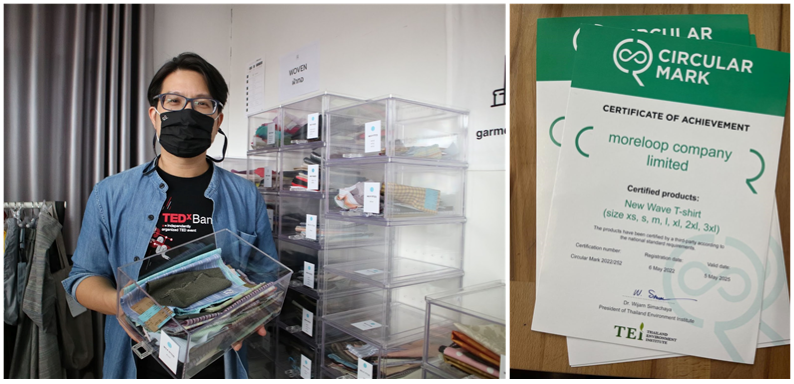
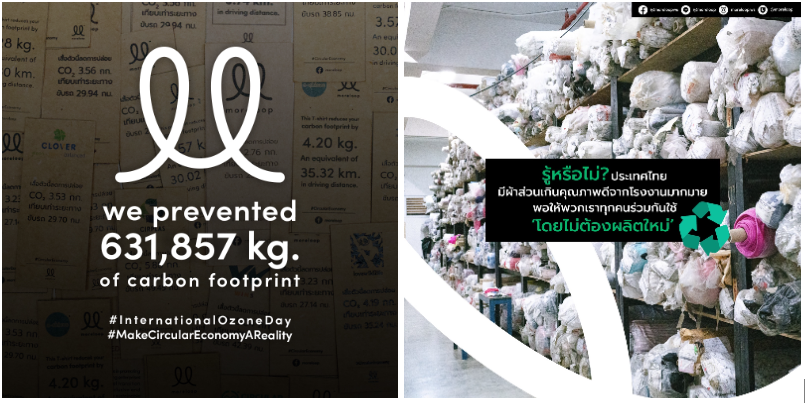
It’s good for garment factories because they can sell surplus fabric, and people can buy good quality fabrics and products at relatively low prices.

Address Tel FAX Registration NO. | 34, Sogong-ro, Jung-gu, Seoul, Rep of KOREA (04630) +82-02-730-0525, +82-02-725-2003 world@bstore.org |
Copyright (C)Beautiful Store. All rights reserved.

Copyright (C)Beautiful Store. All rights reserved.